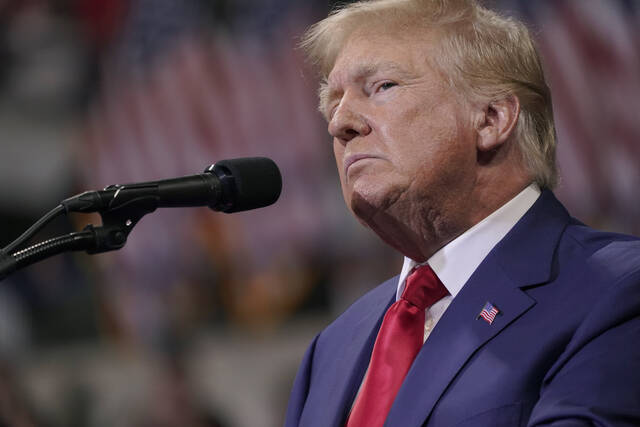Donald Trump is currently targeted by more than 15 separate legal proceedings, including proceedings in Georgia pertaining to election interference, financial cases in New York, an FBI investigation reportedly pertaining to his handling of classified information, and cases brought by police officers, members of Congress and the NAACP over the Capital insurrection on Jan. 6, 2021. Trump, however, has not been formally charged by the Department of Justice (DOJ).
As the ramifications of DOJ charges against Trump are debated, it may help to look at the experiences of other countries.
Israel, which has both a prime minister and a president, has had both former Prime Minister Ehud Olmert and former President Moshe Katsav serve prison sentences. Both left politics because of the crimes for which they were later imprisoned. A second former prime minister, Benjamin Netanyahu, is currently on trial.
Some worry about charging a former American president, but the convictions of Olmert and Katsav did not seem to adversely impact Israel’s society or government.
Netanyahu’s case is more complicated, not because of the ramifications of prosecuting or imprisoning a former prime minister, but because he is still obstinately trying to regain power, even after having been forced out as prime minister and years after public revelations of actions that were obviously inappropriate — though criminality has not been fully and finally established since his trial is ongoing.
In Israel, parties join coalitions to form parliamentary majorities that install prime ministers and their cabinets. Israeli law does not preclude Netanyahu from continuing in office while on trial but he has not managed to maintain a stable coalition for several years since some of the other parties that had been coalition partners with his Likud Party now refuse to work with him.
Furthermore, there are four current ministers and several Knesset members who are former Likud members and staffers that, together with their followers, formed a new party in December 2020 called New Hope, whose platform was similar to the Likud’s but which opposed Netanyahu’s continued leadership (New Hope recently merged with another party). Netanyahu, however, remains chairman of the Likud. The Likud continues to be the biggest party, and efforts to maintain a coalition without the Likud have faltered.
The result is a succession of repeat elections and a dysfunctional government that for most of the last four years has been largely incapable of passing significant legislation, including budgets, or of filling senior posts.
Trump also appears to be positioning himself to run again, but his involvement in politics continues to exacerbate the tensions that divide America and that contributed to the insurrection at the Capitol. Were he elected again, his obstructionist behavior during and since the 2020 campaign and his efforts to undermine confidence in American elections would undermine his own legitimacy and his own ability to lead.
One line stood out during the Jan. 6 hearings. In the final weeks of his presidency, Trump discussed replacing acting Attorney General Jeff Rosen with Jeff Clark, who had been three ranks under the attorney general. Whereas Rosen and others refused Trump’s efforts to involve the DOJ in attempts to use false accusations to delegitimize the election results, Clark was ready to do what Trump wanted. At the Jan. 6 committee’s fifth hearing, former acting Deputy Attorney General Richard Donoghue described a discussion about the possibility of replacing Rosen with Clark in which Trump asked, “What do I have to lose?”
It is legitimate to worry about setting a precedent of election winners taking legal vengeance against political opponents. The prospect of DOJ officials charging the opponent of the sitting president under whom they serve is no light matter, but in deciding whether to charge Trump, DOJ officials must also ask how the United States can maintain its democracy in the face of presidents who think they can disregard the legal and democratic limits of presidential power with nothing to lose. Charging Trump would be an unwanted precedent, but Trump’s behavior is an unwanted precedent in a way that makes not charging him the most dangerous precedent.
Even Richard Nixon took responsibility for his misdeeds. By leaving the presidency and political life, Nixon reconciled himself to a public display of the consequences he faced as a result of his actions, and allowed the country to move on. Trump continues to deny wrongdoing, to undermine confidence in American democracy, to insist that the election was “stolen” and to inflame tensions across the country.
Trump violated American democracy. Now it is up to the DOJ to stop his steal and ensure that he, President Joe Biden and future presidents learn that overstepping the limits of presidential authority has consequences. Despite the fears and hesitations of some, this opportunity to more clearly demarcate the limits of presidential power will be remembered as a benchmark of resilience and strength for American democracy and limited government. A failure to charge Trump would render the legal and constitutional limits of presidential power worthless.
Squirrel Hill native Baruch Stein is an alumnus of Allderdice High School and Penn State. He has been living in Jerusalem for 15 years.








